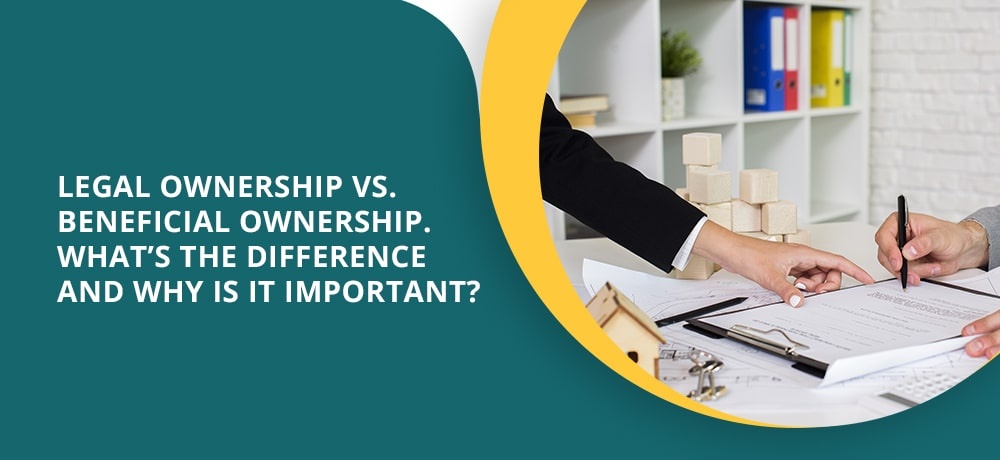Legal Ownership Vs. Beneficial Ownership. What’s The Difference And Why Is It Important?

In a previous article, I talked about joint ownership in non-spouse situations, the two most common types of joint ownership, and why it’s crucial for investors to know and understand the differences. In this article, I’m going to address the difference between legal ownership and beneficial ownership because not understanding those two terms can lead to potential landmine issues when it comes to estate planning for joint owners of a property. In this article, we will focus more on ownership in non-spouse situations and ownership as tenants-in-common.
Legal Ownership vs. Beneficial Ownership: What is the difference?
Legal Ownership refers to the right to the legal interest in a property. The legal owner is the person whose name is legally on the title deed and is registered at the Land Registry. This ownership also gives the legal owner the right to control and manage the property as they see fit, including the decision to sell it or transfer it to someone else. Beneficial Ownership on the other hand has more to do with the economic benefit of the property. This means that regardless of who the legal owner or title owner is, the beneficial owner is entitled to the financial value of the property. The economic benefit or financial value of the property is not limited to when the property is sold. The beneficial owner is also entitled to live in the property and receive a share of the rental income if there is one.
In many cases, the legal owner and the beneficial owner are one and the same. However, when there are two or more owners, who are non-spousal, there are issues that can arise. For example, if someone legally owns a property jointly with their parent or other relative. In today’s Real Estate market, it’s not uncommon for parents to help their adult child(ren) purchase a home because of the income requirement needed to qualify for a mortgage. The parent usually has a low or no mortgage left on their own home so they’re able to “add” their income to the child(ren)’s to help them qualify for the mortgage and stay on title until the child(ren) can qualify on their own and refinance the property and thereby remove the parent off the title of the property.
Why is it important?
This is where things can get tricky and create one of the potential landmine issues that we mentioned if there isn’t proper and legal documentation stating that the child is the actual beneficial owner of the property. Although the parent is a legal part owner of the property and is on the title registration deed, as required by the mortgage company, however, he/she is not the beneficial owner, that’s the child(ren). The parent is simply helping the child(ren) qualify for the mortgage. All involved parties should have a legalized agreement to that effect so that if/when the parent passes, the property does not become part of his/her estate because if that ends up being the case, the property could be viewed as an “investment property” by CRA and could carry a capital gains tax, since the parent already owns a primary residence.
A potential way around this issue is to have the parent own a stated nominal value in the property – like 1%, however, this doesn’t solve the problem completely for a number of reasons. We’ll discuss the top 2. Firstly, 1% of a $100K property may not be much, but 1% of a $5 million property is a sizable amount and the estate will have to pay capital gains on that. Secondly, there’s the issue of who owns the parent’s share of the property upon their demise – is it his/her estate or someone named in a will? What if the beneficiary of the estate is the parent’s spouse who is only related to the child by marriage and not a biological parent? As you can see, this can get complicated very quickly.
Summary
Joint ownership can be a great way to acquire Real Estate that might otherwise be harder to do on your own, if done properly. That is why it’s important to seek legal and financial advice to ensure that ownership registration is done correctly and that the buyers’ intentions are accurately reflected in legal documentation. This can save you thousands in legal fees and taxes and ensure that the property is protected and distributed as intended and agreed upon.
